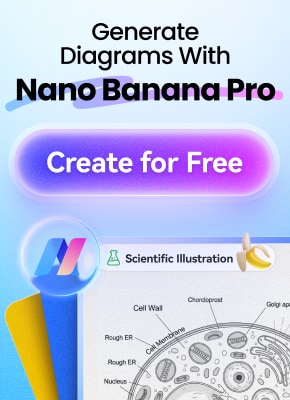An event organizational chart is a valuable tool in event planning that offers several benefits. Event organizational charts provide clarity on roles and responsibilities, improve communication and coordination, and enhance efficiency and productivity. By visually outlining the hierarchy and structure of the event planning team, organizational charts help individuals understand their positions and tasks. This article will discuss everything you need to know about organizational charts in event planning.
Contents of this article
Part 1. Benefits of Using Organizational Charts in Event Planning
Some of the benefits of using an event planning organizational chart are discussed below:
- Clear Roles and Responsibilities
Organizational charts play a pivotal role in clarifying and assigning specific roles and responsibilities within an event planning team. By visually outlining the hierarchy and structure of the team, they provide individuals with a clear understanding of their position and tasks.
- Improved Communication and Coordination
Effective communication and coordination are fundamental pillars for successful event planning. An event company organizational chart facilitates seamless collaboration by visualizing reporting relationships and communication channels.
- Enhanced Efficiency and Productivity
Organizational charts also significantly enhance the overall efficiency and productivity in event planning. By providing a detailed roadmap of the project's structure and workflow, they enable planners to identify potential gaps, overlaps, and redundancies.
Part 2. Key Elements and Components of an Effective Organizational Chart
A few of the key elements and components of an effective organizational chart are listed below:
- Positions and Roles
The first crucial element of an effective event organizational chart is clearly defining and outlining the positions and roles within the organization. This involves identifying the various job titles and responsibilities that exist at different levels of the hierarchy. By providing this information in the chart, employees can easily understand their place within the organization and comprehend the roles of their colleagues.
- Reporting Relationships
The second element of an effective organizational chart is the accurate representation of reporting relationships. It is crucial to depict the hierarchical structure within the organization, including the chain of command and the relationships between different levels of management and staff.
- Departments or Teams
Another key component of an effective event planning organizational chart is the inclusion of departments or teams. Organizations often possess multiple departments or teams that specialize in different functions or areas of expertise.
- Communication Channels
An effective organizational chart should also illustrate the communication channels that exist within the organization. This includes both formal and informal lines of communication. Formal communication channels mention protocols such as reporting to supervisors, team meetings, and official documentation.
- Key Contacts
Lastly, an effective event company organizational chart should highlight key contacts within the organization. These key contacts may include individuals who hold critical roles, such as executive leaders or department heads.
Part 3. Examples of an Effective Event Organizational Chart
Below are a few examples of an effective organizational chart:
- Church Event Organizational Chart
A church event planning organizational chart is designed specifically for managing events within a religious institution. This chart typically outlines various roles and responsibilities involved in planning and executing church events, ensuring that all relevant tasks are allocated to the appropriate individuals or teams.
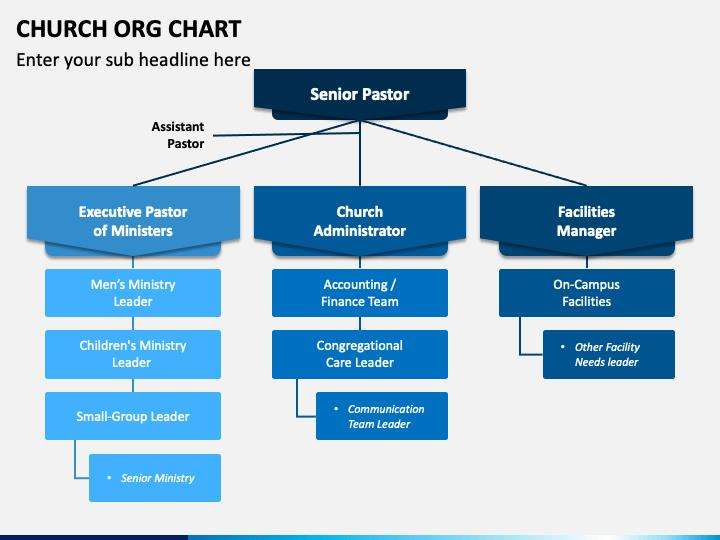
- Event Organizational Chart of an Events Manager
The event organizational chart of an Events Manager focuses on the organizational structure within an events management firm or company. This chart showcases the hierarchy and division of responsibilities within the organization, ranging from upper management to event coordinators and support staff.
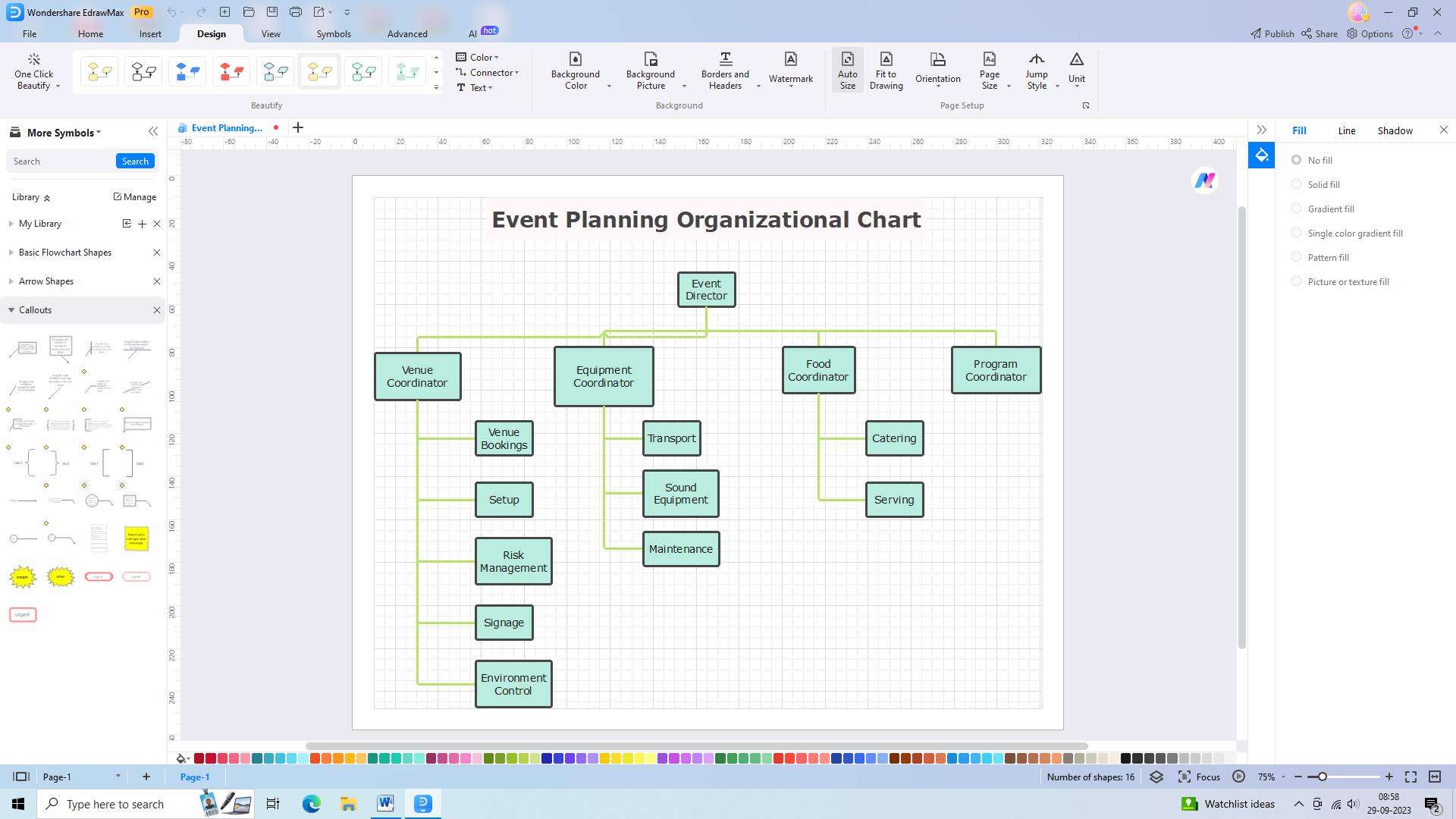
- Advisor's Event Organization Chart
The advisor's event company organizational chart shows how the event planning team is structured. The advisor is the person in charge of the whole event and helps the team. Under the advisor, there are different departments, like logistics, marketing, and finance.
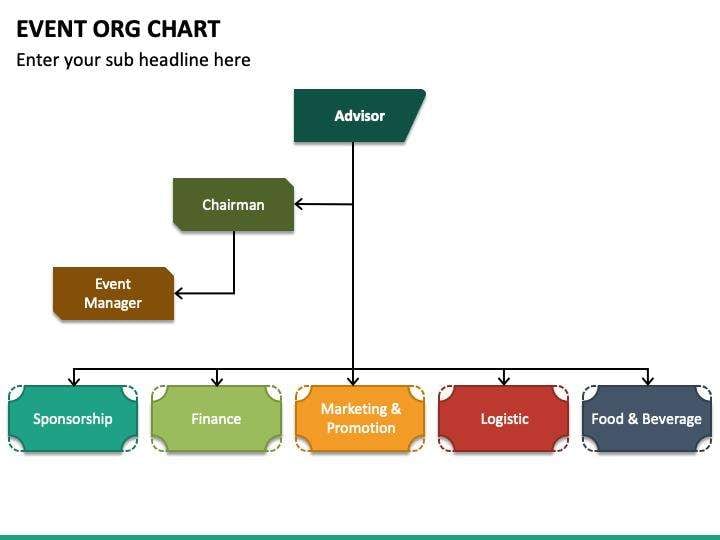
Part 4. Making Event Organizational Charts with Wondershare EdrawMax
Want to make an event organizational chart? Then, you should utilize an online tool for your benefit. There is no tool better for creating an event organizational chart than Wondershare EdrawMax. Listed below are the steps to create an organizational chart using the tool:
Step 1: Template Selection
Launch Wondershare EdrawMax and select the Organizational Chart template. This template offers a customizable layout specifically designed for event organizations.
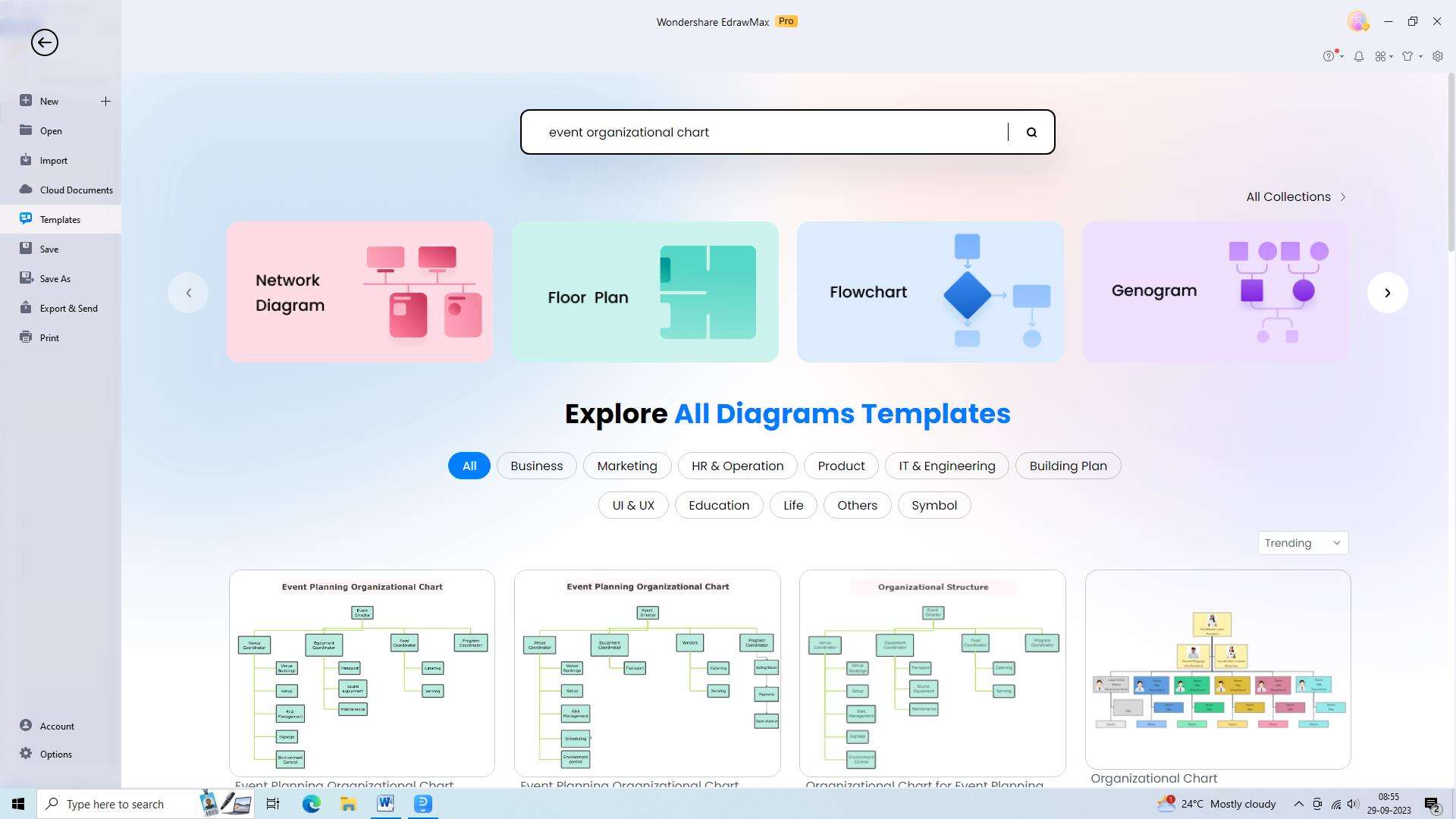
Step 2: Shape Addition
Add shapes to represent different roles or positions within your event organization. Utilize the shape library in EdrawMax to find suitable shapes or icons for each position.
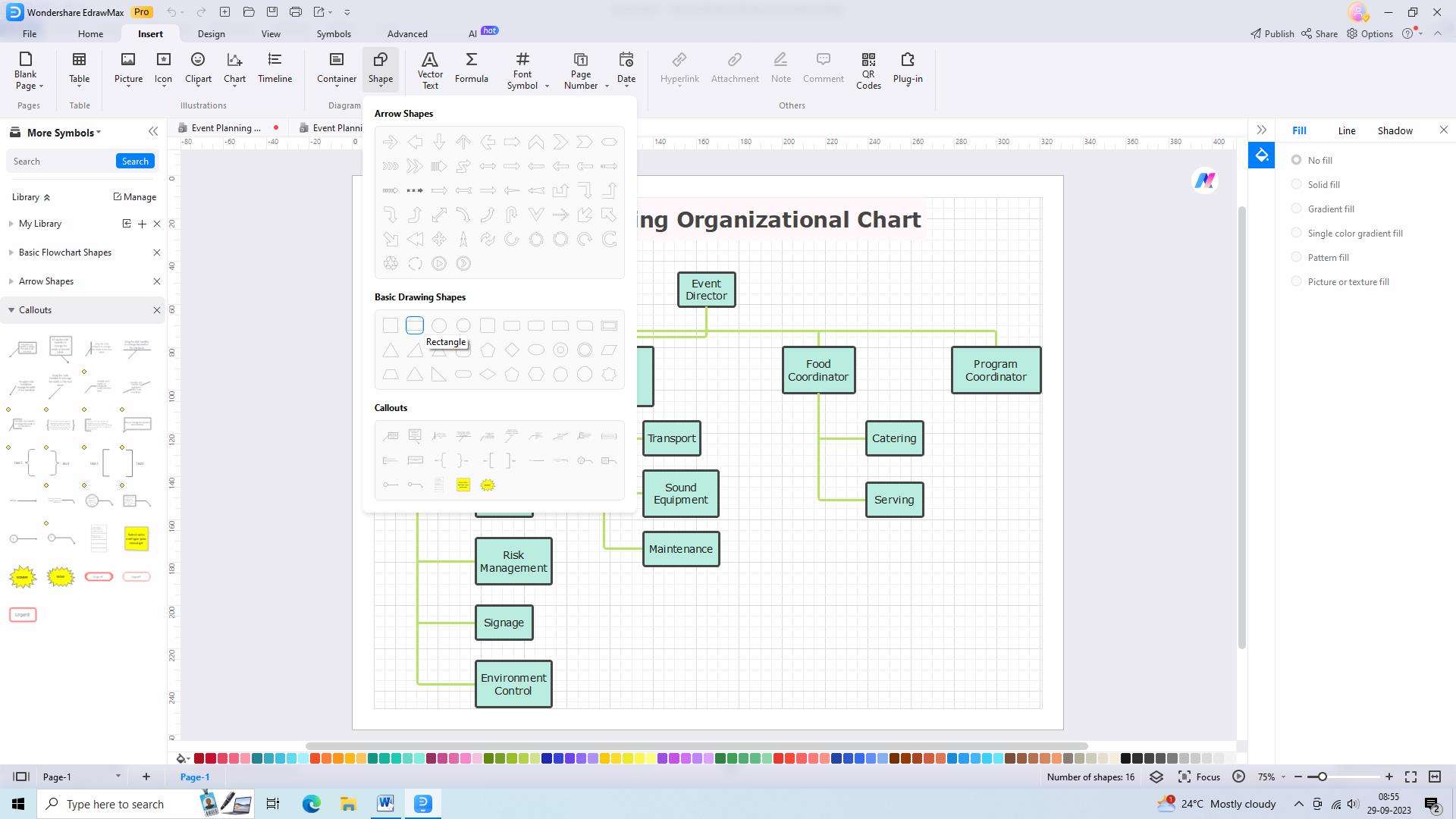
Step 3: Connection Creation
Establish a hierarchical structure by connecting the shapes in your event company organizational chart. Utilize the connector tool in EdrawMax to draw lines or arrows between the shapes, indicating reporting relationships.
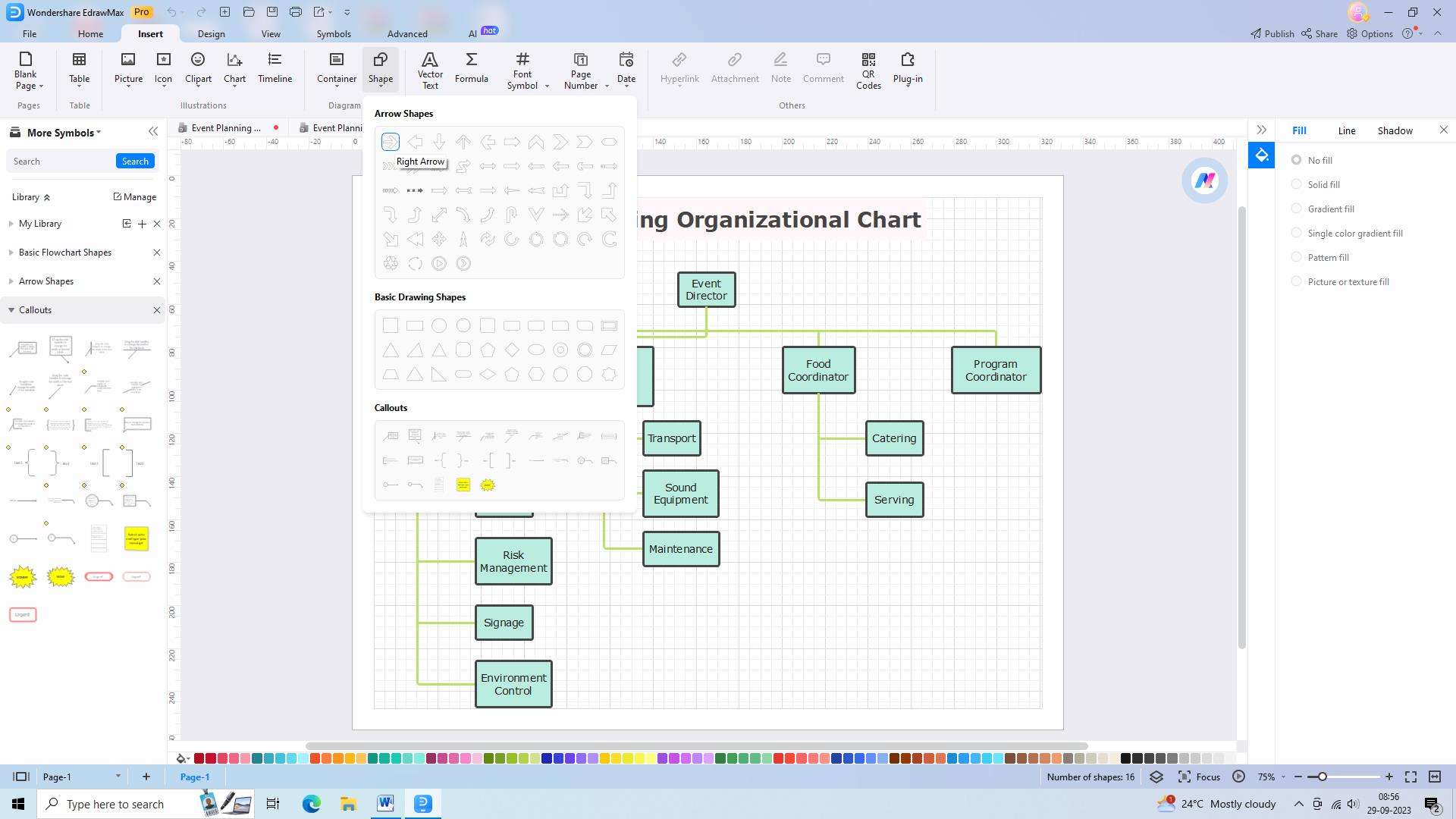
Step 4: Customization
Customize the chart by adding names and job titles to each shape. Easily edit the text by double-clicking on a shape and inputting the relevant information. You can also modify colors, fonts, and styles to align with your event theme or branding.
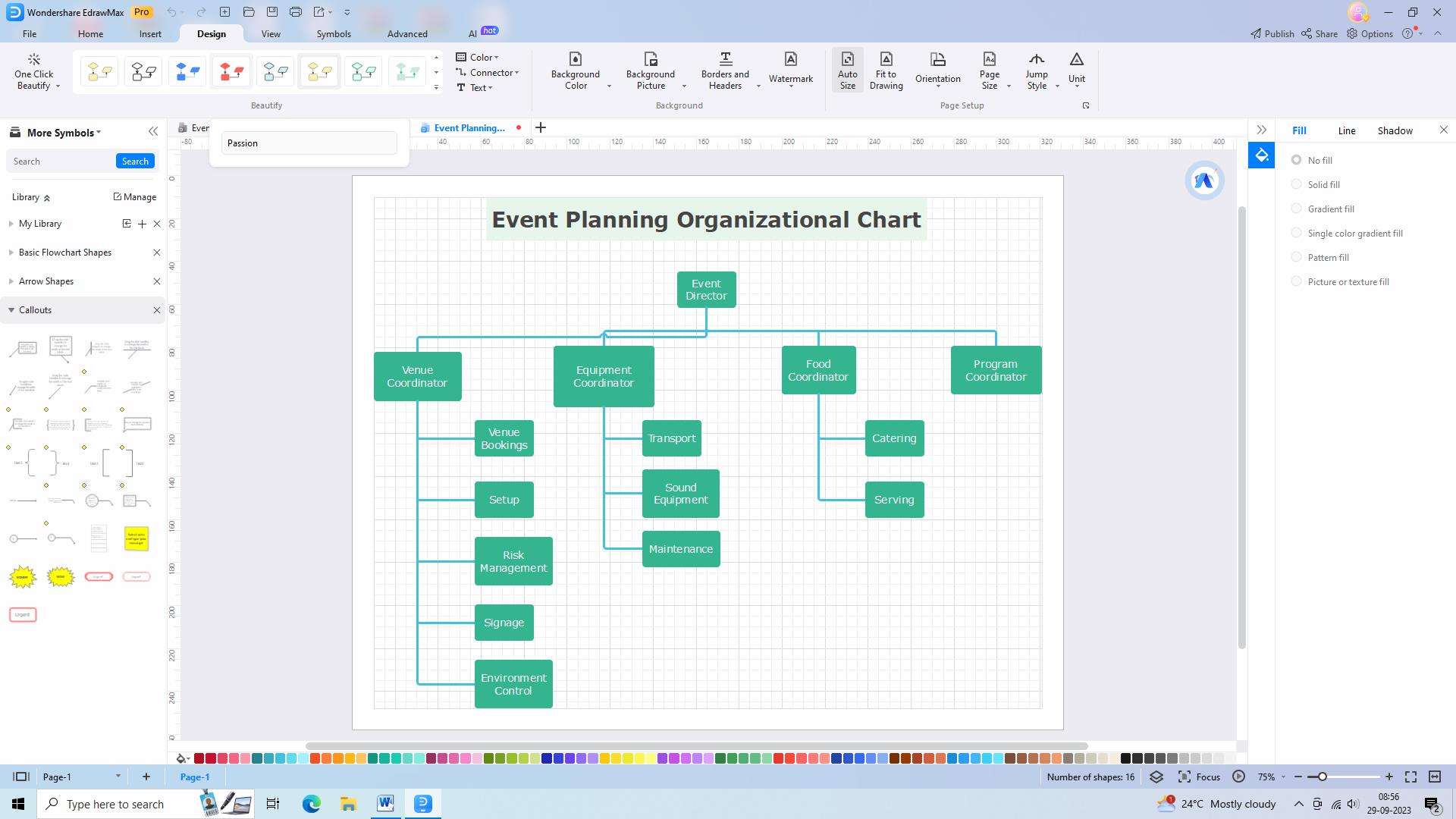
Step 5: Review and Finalize
Review and finalize your event organizational chart. Ensure that all positions and reporting relationships are accurately represented. Additionally, you can export the chart as an image or PDF file to easily share it with your team or stakeholders.
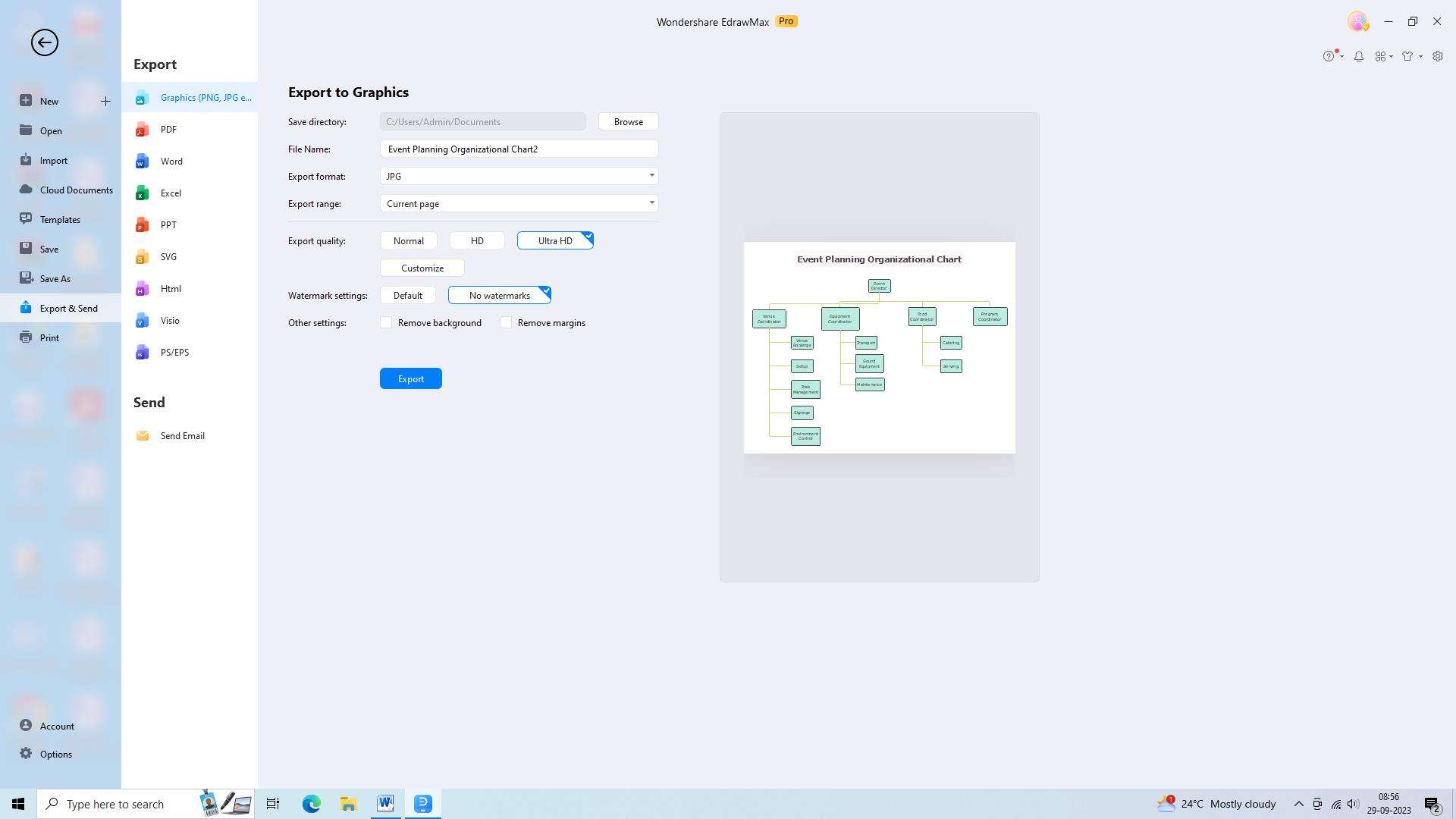
Conclusion
Organizational charts play a crucial role in event planning by providing clear roles and responsibilities, improving communication and coordination, and enhancing efficiency and productivity. By utilizing key elements such as positions, reporting relationships, departments or teams, communication channels, and key contacts, event planners can create effective event organizational chart that streamline operations and ensure a successful event.




